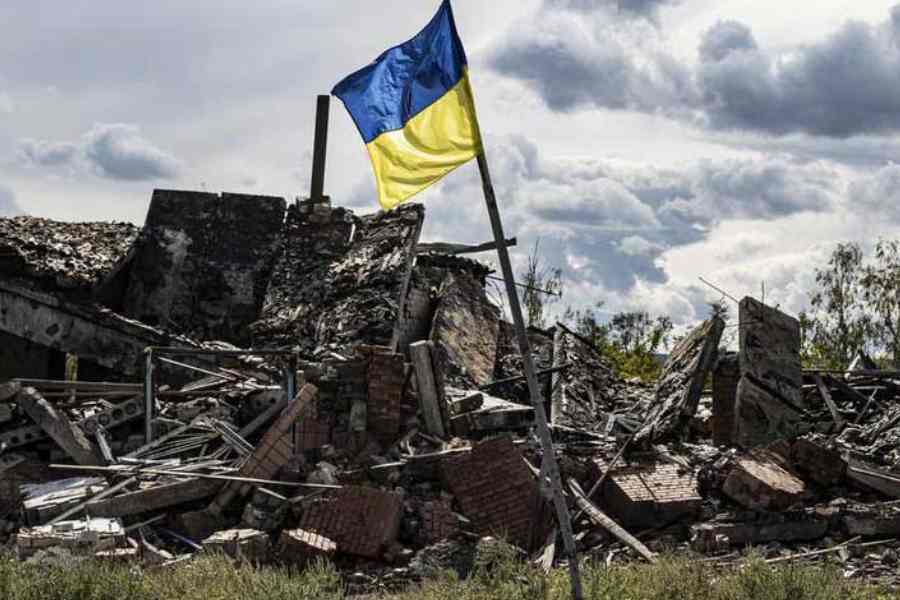A new sound wafts through the open windows at night in this town near the front line: children hollering at each other down the block, even long after dark.
The markets are full. Sales are surging at the local bike shop. Red tulips, planted by hand, are bursting open everywhere.
It is remarkable — “Unrecognisable,” one city official said — how different this small town in eastern Ukraine feels from a year ago. Last summer, Pokrovsk was a spooky landscape of boarded up houses and bushy yards. No one was around. Now it’s hard to take a few steps without passing someone on the sidewalk.
Nothing has changed outside Pokrovsk. The front line is still 30 miles away. Ukrainians are still dying in droves. One of the biggest armies in the world, that of the Russian Federation, is still bombing cities while they sleep.
But what has changed — and it reflects something broader happening in small towns across this vast country — are people’s calculations. How much danger are they willing to accept? What is the best for them and their families? How should they accommodate the war on a daily basis? The answers to these questions seem different this year, and without consulting each other, many people have reached the same decision.
It is resilience, yes, but perhaps also something a little less shiny: resignation. “The war is here. There is no safe place in Ukraine. So you might as well get on with it,” said Natalia Medvedieva, a family doctor who tried living in a safer place in western Ukraine with her son but came back here a few months later. And home is home.
“It’s hard to describe what is so special about home,” said Pavel Rudiev, an engineer at Pokrovsk’s small train station. “It’s where everything is familiar, where you know people, where you have friends.” Many people said that when they were displaced, it was hard finding work. “And I need to work,” Medvedieva said. “I have my life.”
Since last summer, at a pretty steady rate, Ukrainians have been returning. More than 5.5 million have gone home, according to the International Organisation for Migration.
Of course there’s concern. Medvedieva keeps a bag packed with her documents, money and some clothes. Viktoriia Perederii, a veterinarian, who returned to Pokrovsk last year after trying to live in central Ukraine, said that many families bring her their pets to get clean health certificates for international travel in case they need to leave in a hurry.
“It’s difficult to evaluate the risks,” she said. “There is no safe place in Ukraine. Look at Uman,” she added, referring to the recent missile strike that killed 25 people in a city that, until that moment, many Ukrainians had considered perfectly safe.
At this time of year, Pokrovsk is basking in spring. White cherry blossom petals delicately flutter through the air and pile up along the curb in handsome drifts. The long side streets, lined by modest one-storey homes with peaked roofs, smell of freshly turned earth. In the gardens out front, women in aprons and headscarves plant flowers — not something you do if you’re about to pack up and flee.
Before the war, Pokrovsk’s population was about 50,000. It dipped to around 30,000 last spring, and now it’s back up — to 57,000, actually, said Serhiy Dobriak, the head of Pokrovsk’s military administration.
“Business is good,” said Larysa Titorenko, a seed vendor at Pokrovsk’s busy central market. Her racks of happily decorated packets were moving fast — marigolds, melons, radishes, carrots and about eight varieties of cucumber.
Then tears flashed in her eyes. Her daughter’s house had recently been destroyed in a frontline town not far away. “I’m OK, really,” she insisted, wiping her eyes with her sleeve.
This duality is everywhere. People in war do something that most in the world don’t have to — they keep two big thoughts running in their heads at all times: live life as fully and richly as possible and, at the same time, plan for it to be turned upside down.
New York Times News Service











